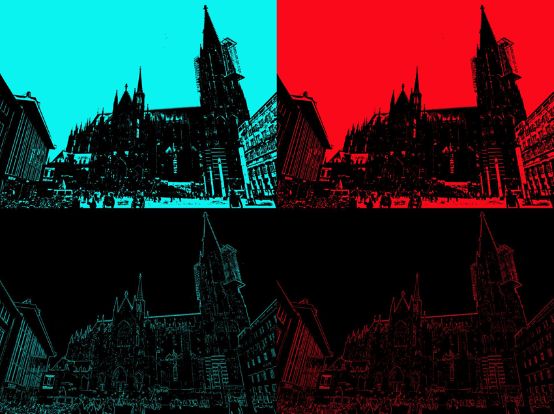Contemporary music in the church
From September 25 to 28, the congress "Popular Music and the Church" took place at the Protestant University of Church Music in Tübingen.

The conference was well attended with 90 participants - mainly full-time and part-time church musicians, music teachers and theologians - and offered a considerable number of speakers with around 40 experts. The program included a well-thought-out, well-coordinated range of panels, lectures, forums, workshops and concerts. The events were geared towards the needs of church music practice.
In the first of a total of three lectures, Bernhard Leube addressed the following topics under the title Music as a time announcement the experience of the church of all times in worship through the presence of biblical texts and music from different centuries. He concluded that contemporary music in the church, regardless of style, must refer to all times of the church. Jochen Arnold made a plea in his lecture on Popular music in church services for a "multilingual liturgy" whose central characteristic of church music is its stylistic breadth and openness to popular music. Particularly helpful was a "quality check", which used nine questions to compile criteria for the suitability of popular music for church services. Steffen Kaupp based his remarks on the church's Popular music as Babylonian captivity or bridge to foreign worlds on membership surveys commissioned by the Württemberg regional church. His recommendations to church musicians to reflect on their own musical socialization and milieu roots, to reduce fear of contact and incomprehension towards the musically unfamiliar and to develop a musical "desire for others" were convincing.
22 workshops covered a wide range of musical topics. The instructors included internationally renowned performers such as Patrick Bebelaar (jazz piano), Michel Godard (brass improvisation), Roger Treece (circlesing/improvisation) and Morten Kjær (choir). Small groups allowed for a relaxed learning atmosphere in which the participants' joy in getting to know each other and learning, playfully trying things out and experimenting together was clearly noticeable.
Three evening concerts brought together established soloists and ensembles from various popular music genres. Johannes Falk & Band, Glasperlenspiel, the Jazzchor Freiburg & Roger Treece, the LAKI-PopChor with Hans-Martin Sauter and Hans-Joachim Eissler's band, the jazz trio Michel Godard, Patrick Bebelaar and Frank Kroll as well as Brass Connection with Matthias Schnabel were also well received by the Tübingen audience and offered inspiring moments.
The liturgical highlight was the closing service with Bishop Frank July in Tübingen's Stiftskirche, which included popular music as an example. At the end The way of Love (after 1 Cor 13), a composition commissioned for the conference by Morten Kjær and Malene Rigtrup, was premiered.
Music professors, church and secular popular musicians, theologians and representatives of regional church institutions discussed in four excellent panels. The first panel proclaimed that the time of "trench warfare" between classical music and popular music was over and that the focus was now on concrete practical questions. In the panel on questions of text quality, it was pointed out that there have been too few good texts suitable for popular music on certain theological themes (lament, doubt, fear, mourning) and occasions (church year, Kyrie). There was agreement in the discussion round on popular music education in the church that further development of university education is urgently needed, but no agreement could be reached for the time being on the specific form of study. The question "Specialists or all-rounders?" tended to be answered with "both". The fourth panel dealt with the future of popular church music and the future role of the church musician with a popular music focus. It was hoped that the results of the conference would be taken into account by church decision-making bodies with regard to the training and employment of church musicians.
The Evangelische Kirchenmusikhochschule Tübingen, which emerged from the Kirchenmusikhochschule Esslingen am Neckar in 1998, is one of the smaller universities in Germany. Specific features of the university include close cooperation, such as that with the nearby Catholic Church Music College in Rottenburg am Neckar, as well as the establishment of the study focus "Church Popular Music".







